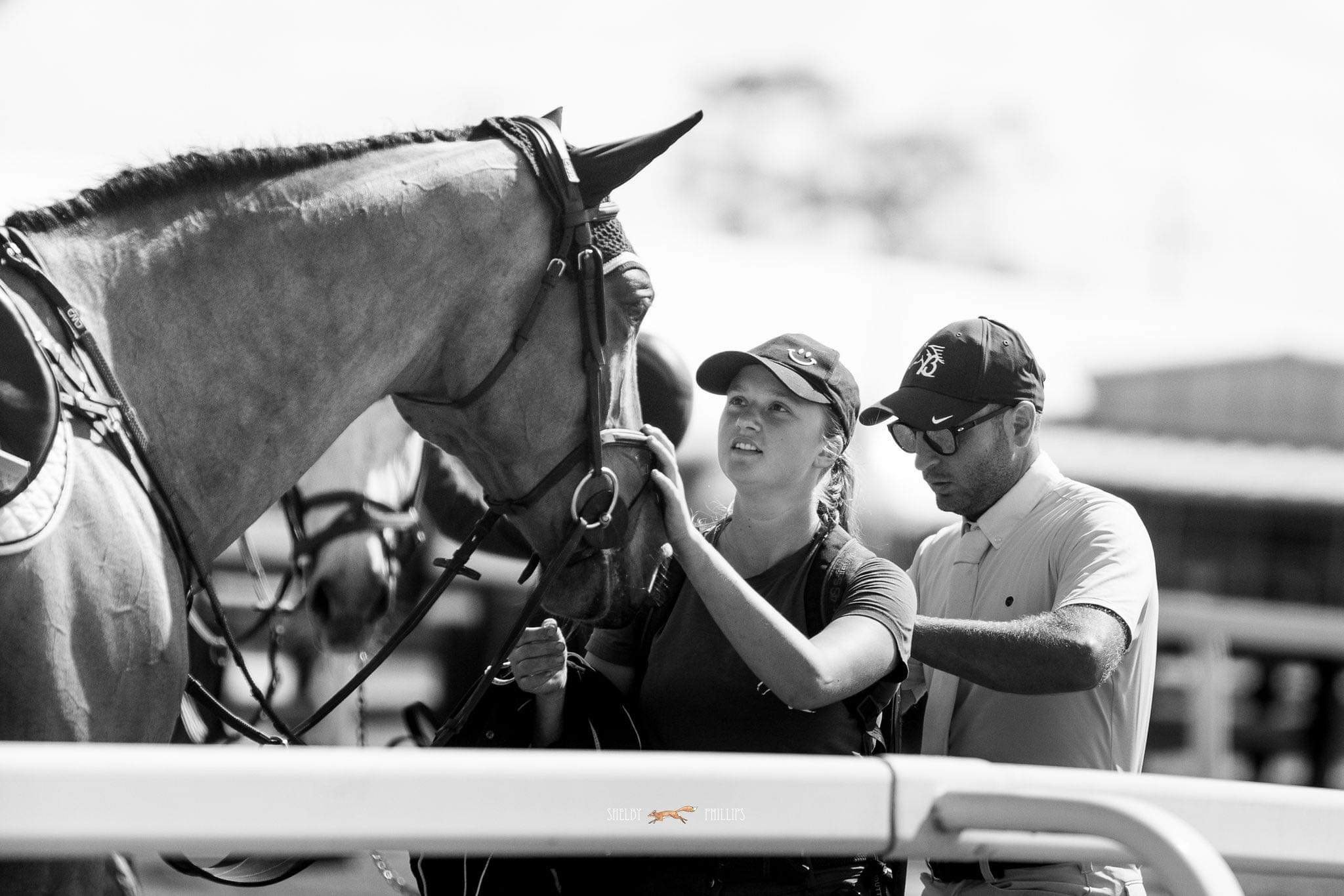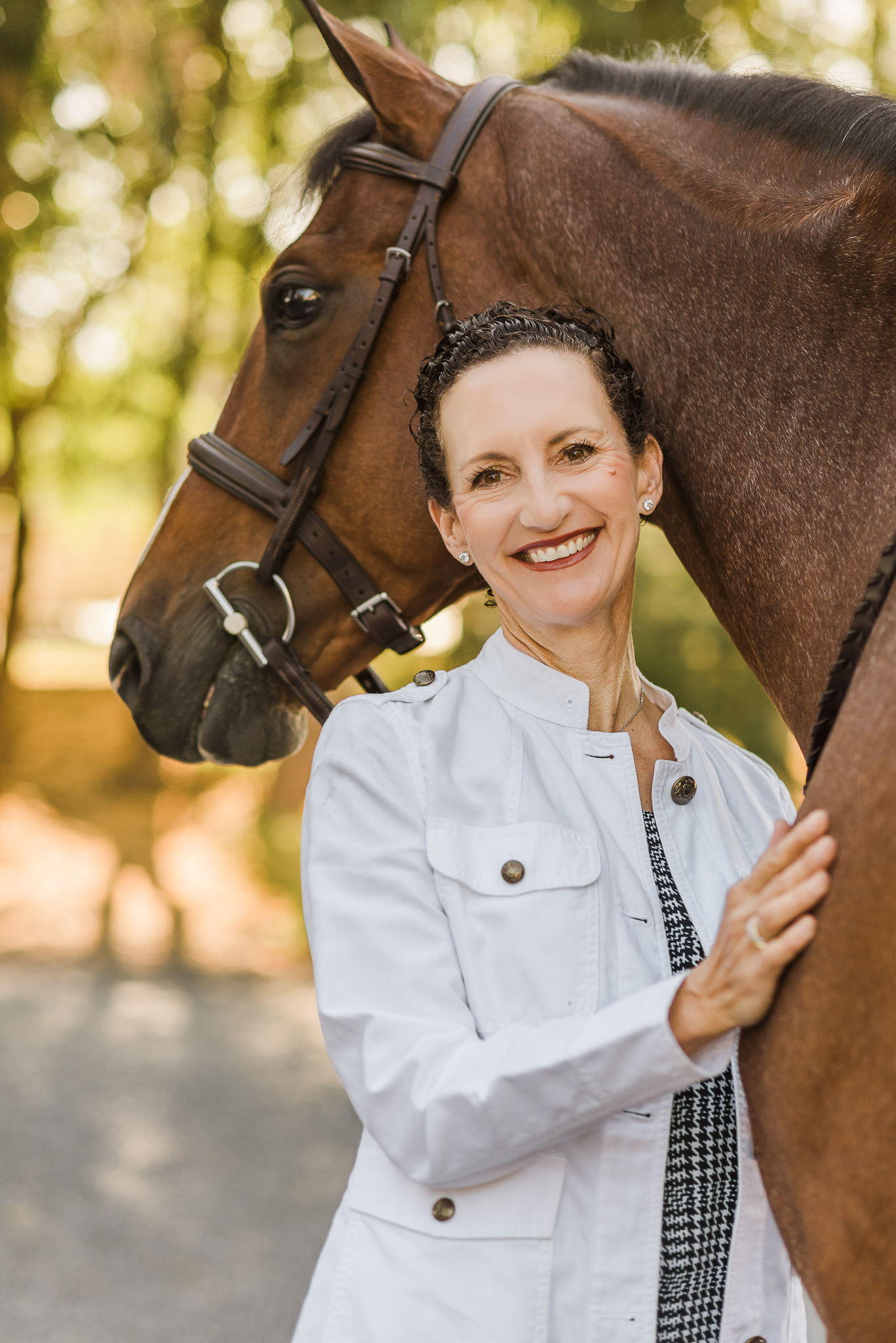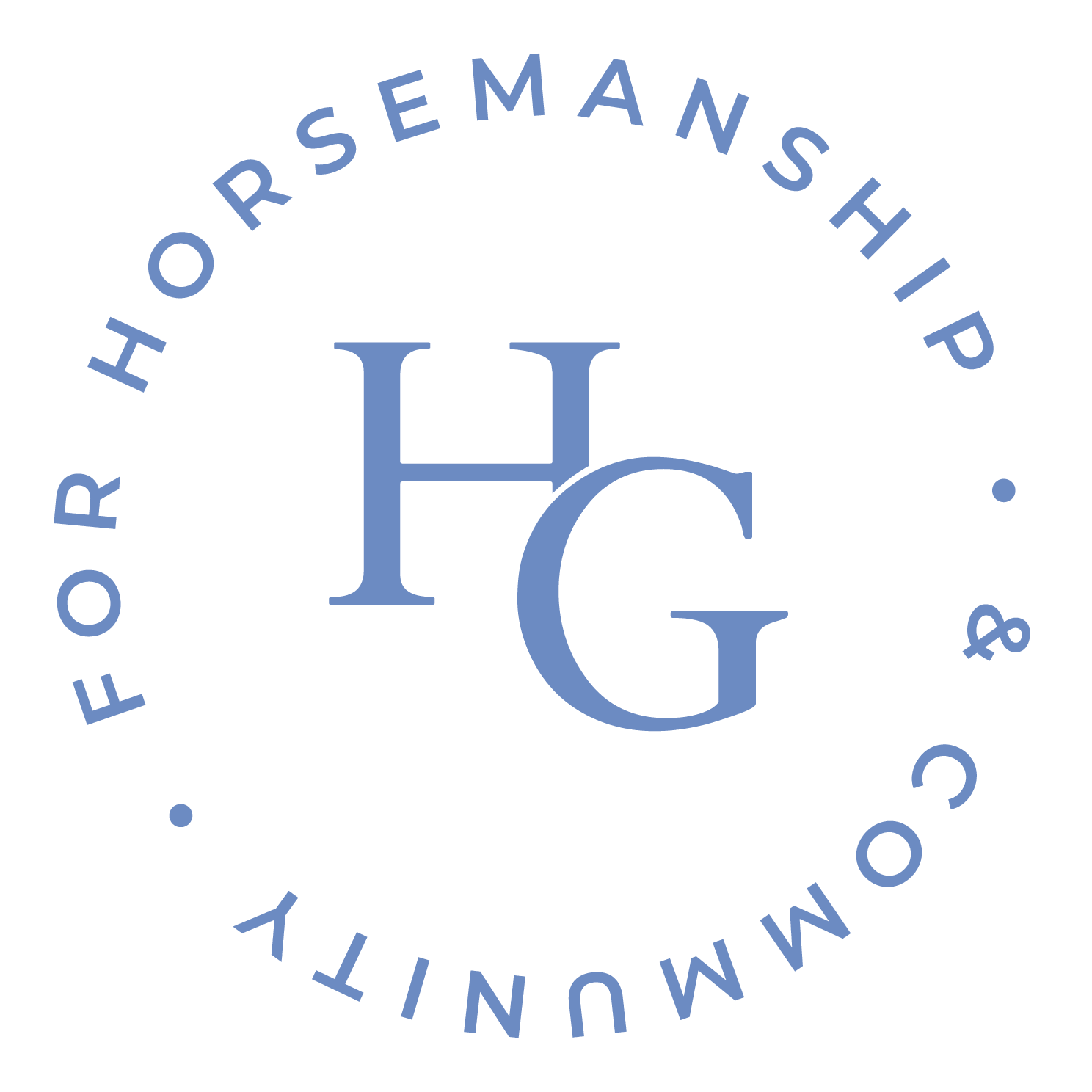Let’s face it. The job of a top show groom is full body, mind and spirit. You’re on call 24/7, sometimes under-appreciated, often underpaid, and always sleep deprived. Why do you do it? Because you are devoted to the horses, and you enjoy an intimate relationship with them. You know their peculiarities, their likes and dislikes, their moods — more so than their riders. You are their best human friend and advocate. Moreover, you’re a groom because you love being part of a team that brings a magnificent animal to perform at an elite level in competition.
The best professionals in the industry know that their groom is a vital team member. They realize that without him or her, their horse won’t feel or look his best, and won’t perform his best either. The groom is the first to notice that the horse isn’t feeling himself, or that there is a little bump on the fetlock that wasn’t there yesterday, or that his eye looks a little dull. The best professionals regard their grooms as professionals in their own right, and treat them with respect, thoughtfulness, and fairness.
Little Work-Life Balance
Under the best of circumstances, a groom’s life is full throttle. There is little work-life balance — life IS work. While this is a choice grooms make when they pursue this career, it’s still a very stressful existence. Given all this, how do grooms best care for their own mental and emotional health?
Here are a few tips, from my point of view as a sport and performance psychologist.
- Be mindful of and grateful for the parts of your job that you love. If you don’t love any of it, then it might be time to consider another path.
- Be deliberate about showing up fully, or as fully as you can, each and every day. Choose to do the very best job you know how and then, take pride in the job that you do. In order for others to have the highest regard for you and your expertise, you must have high regard for yourself as a professional and show up fully each and every day.
- Be deliberate about taking breaks and recovery time. Sometimes those breaks will be short, but if you are mindful that it’s a break, you will benefit more from the time off — whether that is 8 hours or 15 minutes.
- Take the best physical care of yourself that you can. Eat well, get as much sleep as you can, take care of your body, and don’t overindulge in substances or alcohol. If you treat yourself as a professional, then others will follow suit.
- Ask for what you need from your team. Are you being compensated fairly and treated well? If not, I encourage you to spend some time thinking about why, and make a plan to change the situation.
- Make your needs known. Any respectable professional will want to know that an essential team member is struggling or in need of additional support. If your boss isn’t interested, that is important information too; you might need to choose to move on to another situation.
Take a Step Back and Think
As a top show groom, you know that your life is not ‘normal’ or balanced. You don’t expect it to be. You must enjoy the challenge, the excitement, and day to day life with show horses and their people. If you are feeling stuck, unmotivated, exhausted, or overwhelmed, try to give yourself some time to step back and think about why and what changes that can be made. Your horses (and your team) will be grateful, because, as you well know, they depend on you.
Want me to address specific issues or challenges? Please reach out! You may email me at darby@darbybonomi.com.
©Darby Bonomi, PhD
Pictured in featured image: Eden Pessin – Bluman Equestrian, by Shelby Phillips Photography
Bio picture by Holly Casner Photography.


